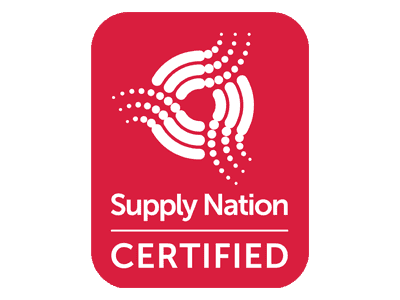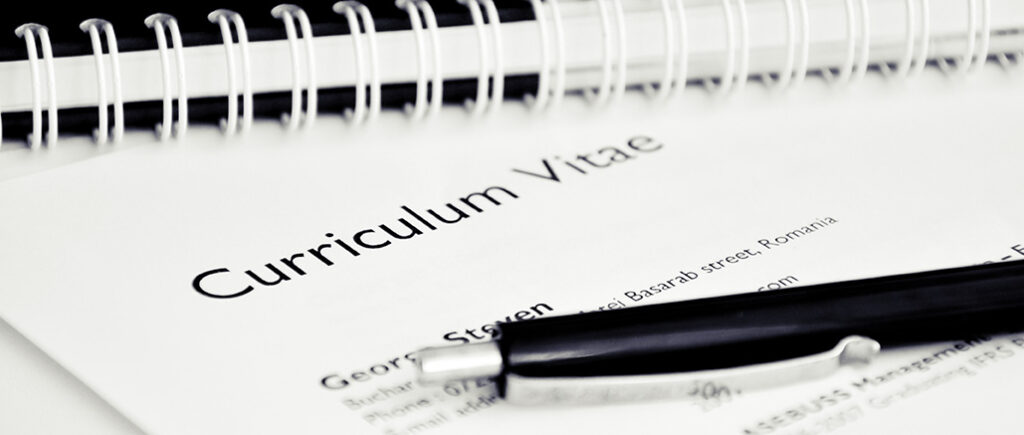As recruiters, we see our fair share of CVs – the good, the bad, and the downright ugly. If you want your CV or resume to make the right impression and help you land your dream job rather than ending up in the nearest bin, there are a few things to consider.
Following our simple guide to improving your CV, you can create a compelling and professional document that reflects who you are and will take you where you want to be.
CV tip #1. Blend in to stand out
Let’s start by reminding yourself that a personal CV only has one function – to get you an interview! Consider it your professional calling card, so make sure that it’s a neat document without any glaring errors and that it gets you noticed for all the right reasons.
CV tip #2. Stay relevant
Keep your CV up to date. Add recent qualifications and experiences, and remove any information that’s no longer relevant – to you or the job you’re applying for.
CV tip #3. Tell your story
Write your CV in the 3rd person, referring to yourself by your name rather than a pronoun (he/she/they). Make sure you include the following:
- Overview (3-5 lines)
- Key skills (if relevant)
- Qualifications, training, professional memberships
- Work History
- Volunteer or work experience (if appropriate)
- Hobbies and interests (3-5 lines)
CV tip #4. Be brief and to the point
Make your CV clear and engaging, but keep it concise – it isn’t your life story. As a general rule, the following guidelines will serve you well:
- Limited or no working experience (recent graduates, school leavers) – 1 page
- 2-5 years’ working history – 2 pages
- 5-10 years’ working history – 3 pages
- 10+ years' working history – 4 pages
CV tip #5. Include contact information
Make sure potential employers know how to get in touch with you by including your current contact details (i.e., an email address and a mobile number).
Make sure your e-mail address doesn’t send the wrong message or give a bad impression. If the address isn’t particularly professional, save it for your friends and family and set up a new one with a more professional tone. A combination of first and last name is always a good idea, e.g. jane.smith@hotmail.com.
CV tip #6. Keep it simple and legible
Keep the format simple, using a single, legible font throughout (Times New Roman, Arial, Calibri, etc.) and justified to the left. Structure your text into different sections to break up the sea of grey, making it easier to read and quickly find all the relevant information.
CV tip #7. Put your best foot forward
The first page of your CV is where you can really sell yourself to potential employers. Start with a profile of who you are, plus your key achievements, followed by a brief career history, and end with your hobbies and interests – this can help hiring managers connect with you, particularly if you have limited working experience. It also demonstrates your transferable skills and other abilities.
CV tip #8. Be specific
Translate what you know and can do into terms that will appeal to potential employers. Talk about specific situations and explain what you did that made a difference.
CV tip #9. Back yourself
Highlight who you are and what you can do and provide evidence to support your claims. Again, be specific and express your achievements in terms of awards, money, time, or percentages. If you don’t have any work experience, say something interesting about your academic history instead and relate it to an employer’s needs rather than just regurgitating the syllabus. For example, if you led a seminar or gave a talk, you can emphasise your facilitation or presentation skills.
CV tip #10. What NOT to do
There are some things that you shouldn’t include in your CV – and they are just as important as what you do put down:
- DON’T give your full address – suburb and postcode is sufficient.
- DON’T include your age, date of birth, sex (or sexuality), marital status, or religious beliefs.
- DON’T put your photo (or any other pictures/logos) on your CV.
- DON’T put down names or contact details of referees – there will be a time and place for these at a later stage in the process.
Kickstart your career with Rainy Day Recruitment
Now that you have all the information you need to create an impressive resume, we encourage you to engage with us, share what you’re looking for, and explore opportunities that align with your career aspirations. Our services are free to job seekers and will increase your chances of finding the right opportunity, including roles that may not be publicly advertised.
Call Rainy Day Recruitment for more support and to find out how we can help you find your dream role.



